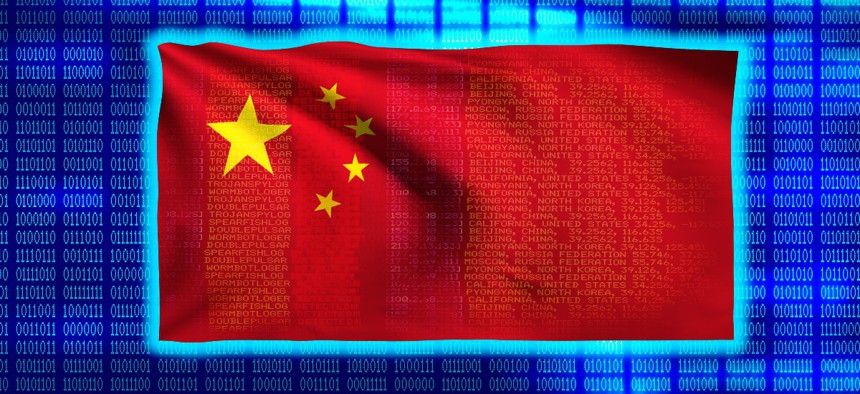Chinese Firms Exporting Surveillance Tools Across the Globe, Report Says

Matt Anderson Photography/Getty Images
A new report from the Atlantic Council said China is allowing government-affiliated companies to export surveillance technologies as part of an effort to expand its global influence.
The Chinese government is using its investments in surveillance technologies to advance “both its ambitions of becoming a global technology leader as well as its means of domestic social control,” according to a report released by the Atlantic Council on Monday.
The report, authored by Bulelani Jili—a non-resident fellow at the Atlantic Council’s Cyber Statecraft Initiative—noted that Beijing’s domestic surveillance system “is confined to its national borders,” but said that the Chinese companies that “make its surveillance state possible are now actively selling their tools abroad.”
These technologies—produced almost exclusively by companies funded by and tied to the Chinese government—enable Beijing to monitor its citizens through the collection of a vast array of personal data.
“State procurement of public security technology and innovation policy is driving China’s surveillance ecosystem,” the report noted. “Surveillance tools scale the party-state’s means to conduct surveillance operations on targeted populations that are presumed to be threats to social stability, which result in legal and extralegal means to address the supposed challenge to security.”
By allowing for the export of technologies underpinning its surveillance system to the Global South—particularly to African nations—the report said that Beijing is able to “expand and strengthen their political and economic influence worldwide,” while also empowering other countries to implement an authoritarian model of surveillance and control over their own citizens.
“Although individual governments purchasing Chinese digital tools have their local ambitions in mind, Beijing’s export and promotion of domestic surveillance technologies shape the adoption of these tools in the Global South,” the report added.
In addition to expanding China’s sphere of influence around the globe, Beijing’s growing reliance on surveillance technologies also serves to “foster further collaboration between state security actors and private tech firms.” And it also advances Beijing’s goal of “cyber sovereignty,” which seeks to influence the ways in which cyberspace is governed.
“This idea and policy prerogative helps Beijing’s promotion of a controlled cyberspace and, therefore, the development of surveillance practices that rely on the use of artificial intelligence, big data and biometric collection, among other means, to monitor citizens,” the report said.
The report’s release comes after the start of China's 20th Communist Party Congress on Sunday. Chinese President Xi Jinping, who has aggressively pushed to expand Beijing’s global influence while in power, is expected to gain a third five-year term once the weeklong congress concludes. In remarks at the opening of the congress, Xi called for China to “win the battle” in the country’s ongoing tech race with the U.S.
China’s growing sphere of influence around the world, coupled with its push to outcompete America in the production and development of new technologies, has led the Biden administration to issue warnings about Beijing’s growing threat to U.S. national security interests.
During an event at the Hoover Institution on Monday, Secretary of State Antony Blinken stressed the importance of the U.S. working more closely with its international allies—particularly when it comes to setting global standards around the use of technologies—to push back on the growing influence of adversarial nations like China.
The Biden administration’s national security strategy, which was publicly released on Oct. 12, also warned in part that China “is using its technological capacity and increasing influence over international institutions to create more permissive conditions for its own authoritarian model, and to mold global technology use and norms to privilege its interests and values.”






